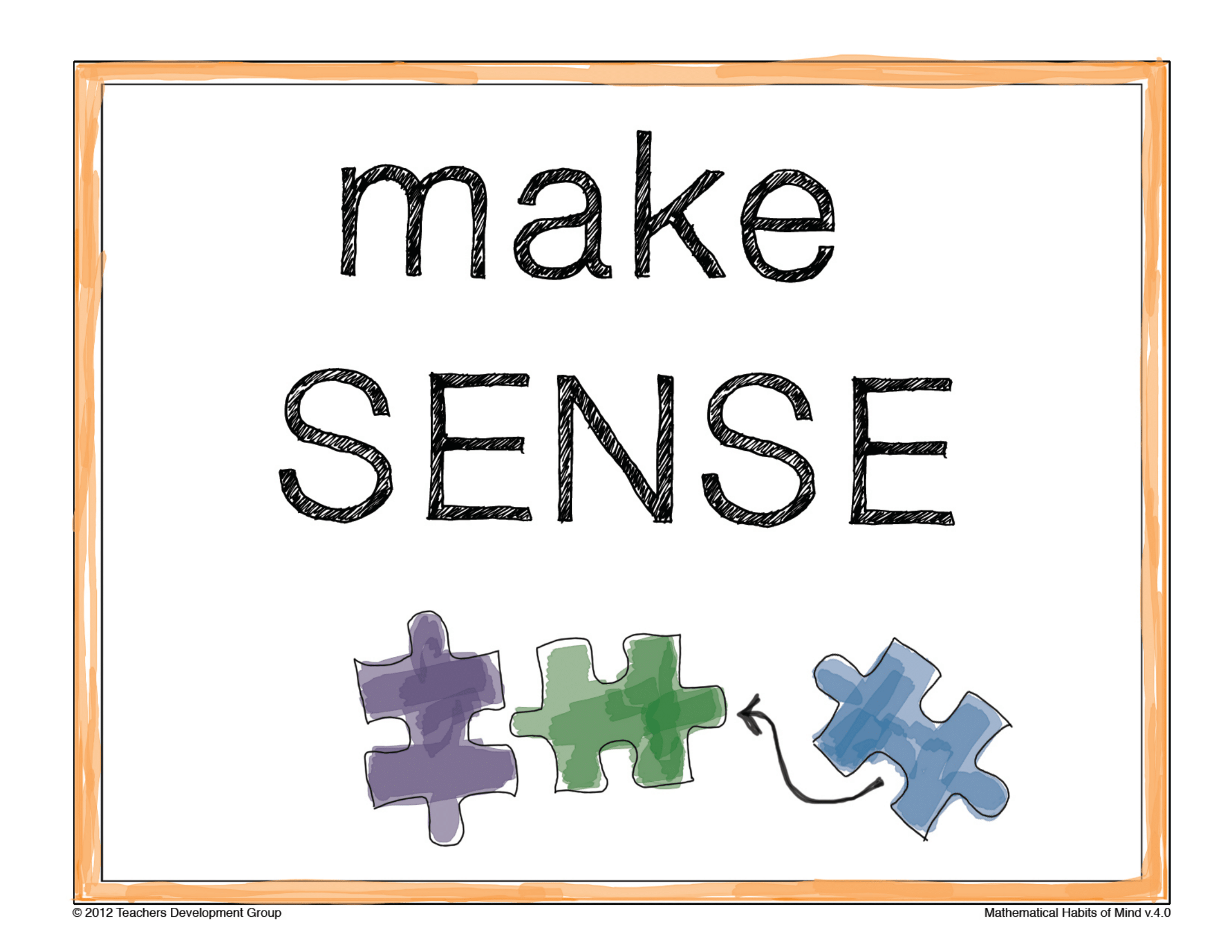Mathematical Habits of Mind: Make Sense
Making Sense is a foundational Mathematical Habit of Mind, central to grasping and working with mathematical concepts. This habit revolves around understanding and interpreting ideas and problems by identifying regularities, discerning patterns, understanding structures, and leveraging various mathematical representations. Additionally, it's about recognizing connections and employing a vast array of mathematical knowledge. This isn't just about number crunching or formula application; it's about truly comprehending the underlying principles and nuances of mathematical situations.
Reflecting on one's thinking is crucial in this process. It's not only about introspection but also about understanding the perspectives and mistakes of others. This reflection fosters growth and resilience, as one learns to persevere through challenges, ensuring that ideas and problems truly resonate and make sense. Becoming adept in this habit means developing the capability to handle diverse situations, employing relevant strategies, tools, or models. Ultimately, Making Sense is more than a mathematical exercise; it's a mindset that aids in problem-solving and deepens the comprehension of mathematical concepts and scenarios.
Imagine you're trying to budget for the month. Making Sense in this context means understanding your income, expenses, and financial goals. It's not just about crunching numbers; it involves interpreting the patterns in your spending habits, foreseeing potential unexpected costs, and connecting these insights to make informed financial decisions. For instance, if you notice a recurring but unnecessary expense, you might decide to cut it out to save money. When planning for a large future purchase, you'd rely on understanding interest rates, payment plans, and your saving habits to make the best choice.
Overall, Making Sense involves using your math knowledge and skills to understand and interpret problems and ideas, and to use strategies and tools to solve problems and make decisions. It is an important Habit of Mind for anyone working with math, whether you are a carpenter, a scientist, or a student.
